Are you looking to strengthen your business partnerships and ensure you're making informed decisions? Understanding the value of references can be a game changer when choosing a new collaborator. In this article, we'll explore how to effectively request business partner references that can provide you with valuable insights and help build trust. Ready to enhance your partnerships? Let's dive in!

Professional Greeting
Professional networking plays a vital role in business growth and collaboration opportunities. Cultivating partnerships often requires reaching out to existing business partners for credible references. This process typically includes formal communication, such as emails or letters, to ensure professionalism. Key elements include clearly stating the purpose (requesting references), identifying the business partner (specific names or companies), and offering a brief overview of how the references will be utilized (e.g., for potential clients or projects). Timeliness is crucial, as it ensures that the references are gathered promptly to facilitate business dealings, which may involve deadlines or specific project timelines.
Introduction & Purpose of Request
In business partnerships, references play a crucial role in establishing trust and credibility. When seeking references from potential business partners, it is essential to communicate effectively the purpose of the request. A concise introduction outlining the nature of the partnership, such as collaborative projects or joint ventures in specific industries, creates context. Additionally, mentioning the anticipated benefits, such as increased market reach or shared resources, emphasizes the significance of the collaboration. Clearly stating the reason for requesting references, like verifying previous partnerships or understanding the partner's reliability, enhances the overall clarity of the request. By providing specific details, such as the types of references required, the process for providing them, and any relevant deadlines, recipients can respond more effectively.
Specifics About Required Information
When requesting business partner references, clarity about specific information is paramount. Include details such as the name of the business partner (for example, 'ABC Corporation'), the nature of the partnership (like collaborative projects or shared services), and the duration of the relationship (for instance, 'three years'). Specify the required feedback areas such as performance metrics, responsiveness, and reliability, which are essential for a comprehensive evaluation. Highlight the importance of any particular industry context, such as technology or retail, to ensure relevance. Request references to include contact information, including email and phone numbers, enabling quick follow-up for validation purposes. Lastly, ensure to communicate the deadline for reference submission to maintain timelines in the decision-making process.
Assurance of Confidentiality
Requesting business partner references involves careful consideration of trust and privacy. Companies often rely on previous engagements as a benchmark for reliability. Establishing a confidentiality assurance can strengthen this request. When approaching prospective references, it is vital to emphasize the importance of discretion in sharing information about past collaborations. Ensuring that sensitive business details remain protected fosters a transparent dialogue. This assurance can help build credibility, as prospective partners may be more willing to share their experiences without concern for unwanted disclosures. Drafting a succinct letter outlining the need for confidentiality alongside specific reference questions can streamline the process and enhance the quality of the feedback received.
Closing Remarks & Contact Information
Closing remarks emphasize appreciation for potential business partners' time and consideration. Express eagerness to build a mutually beneficial relationship. Reiterate interest in obtaining references that can affirm credibility and reliability. Contact information should include the sender's full name, job title (such as Business Development Manager), company name (like ABC Enterprises), phone number (for example, +1-234-567-8900), and professional email address (john.doe@abcenterprises.com). Provide an invitation for any follow-up questions or discussions, fostering open communication.

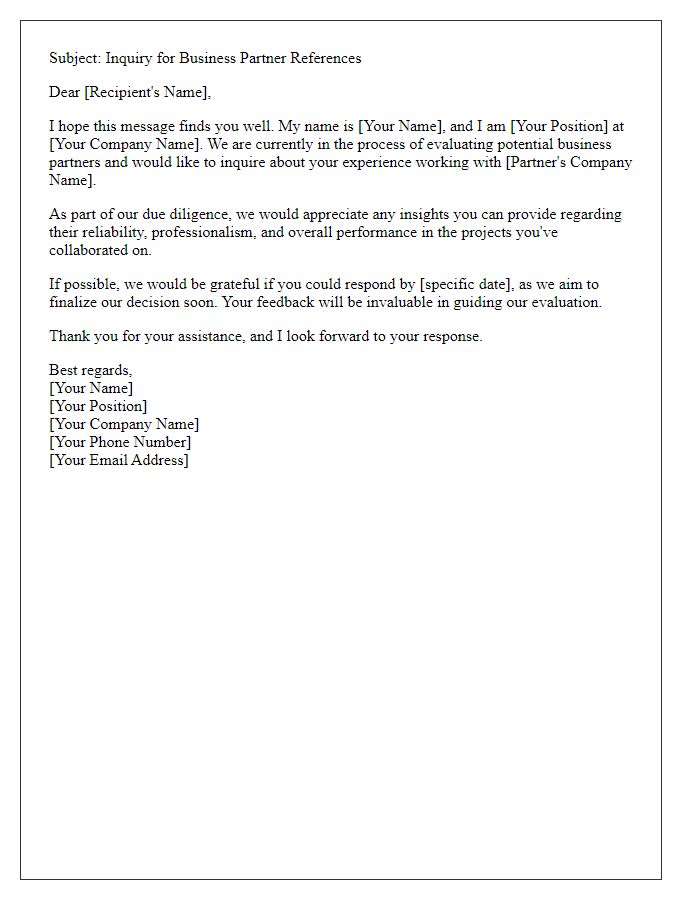
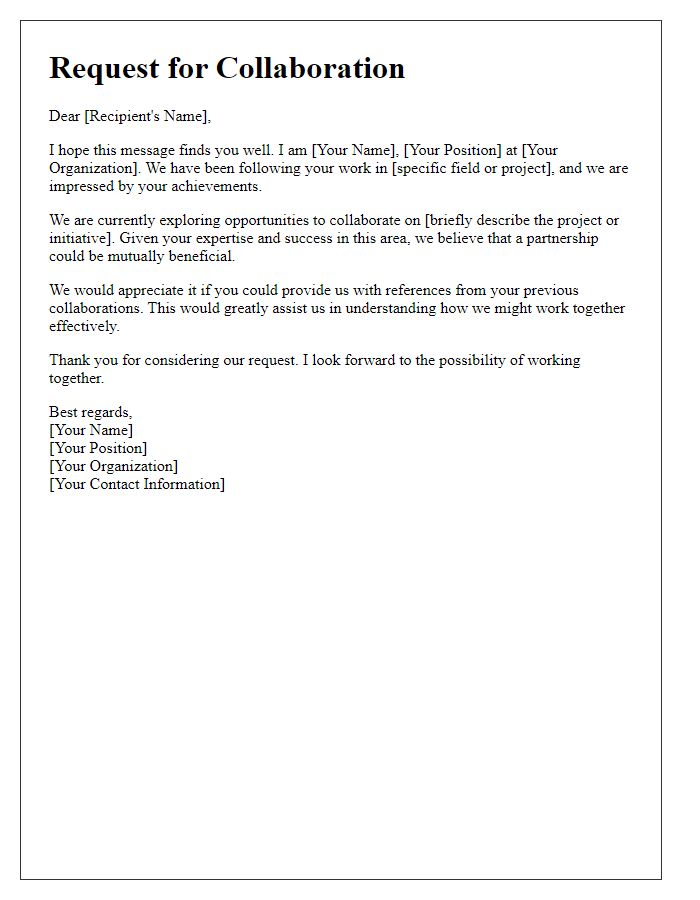
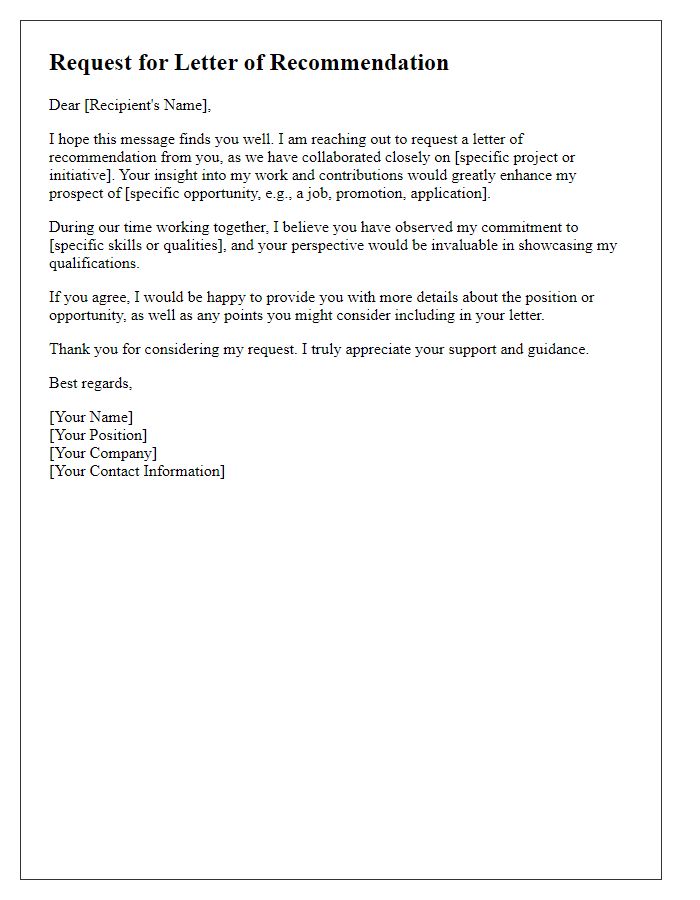
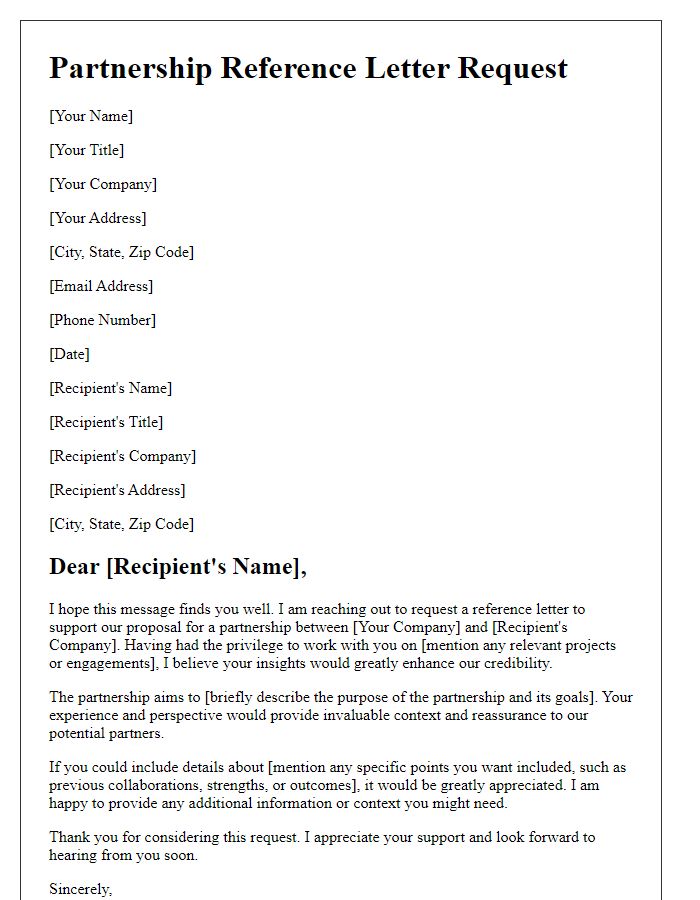
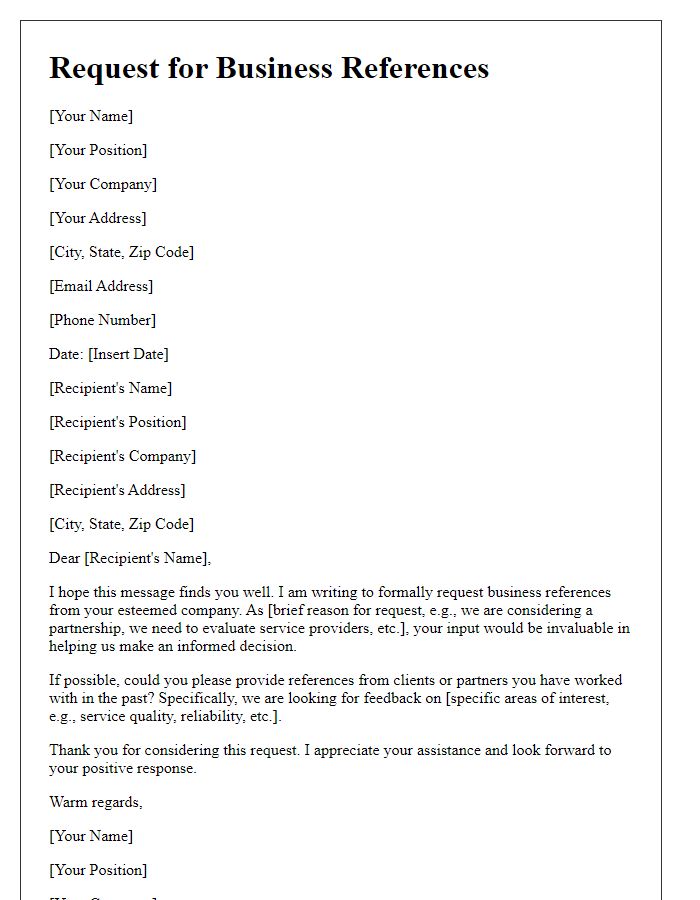
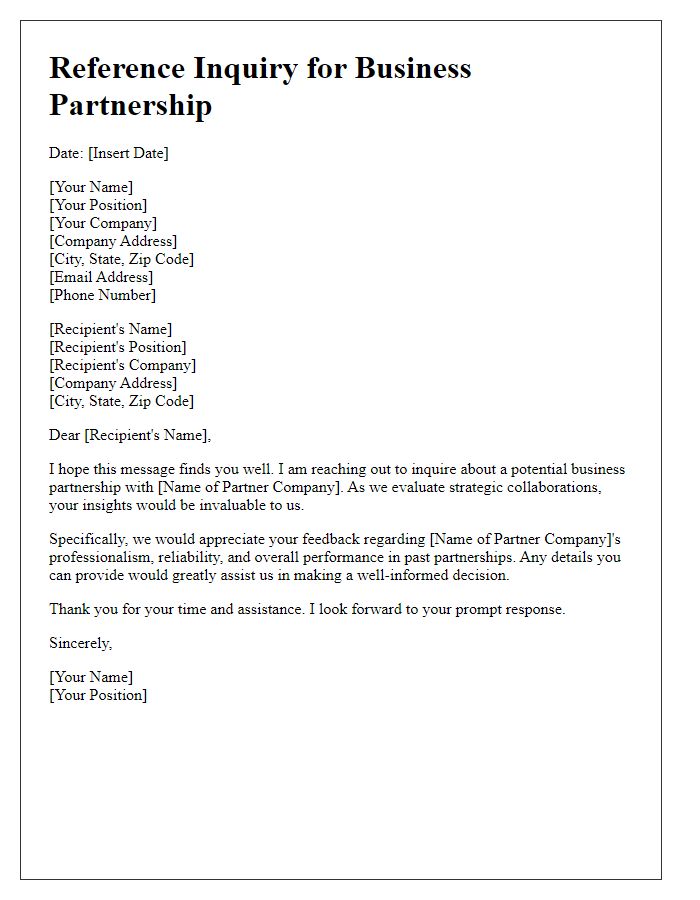
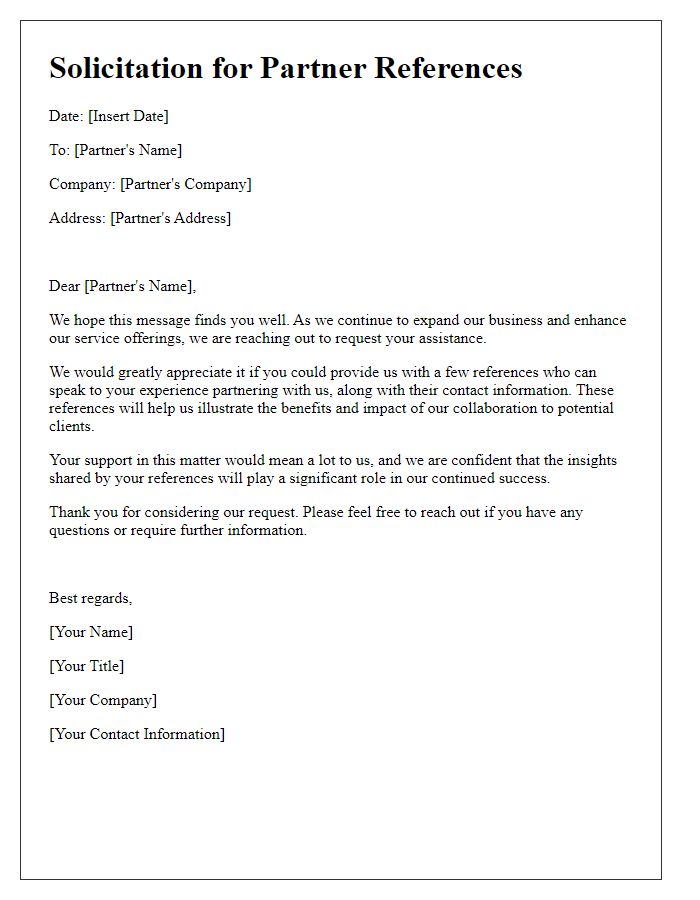
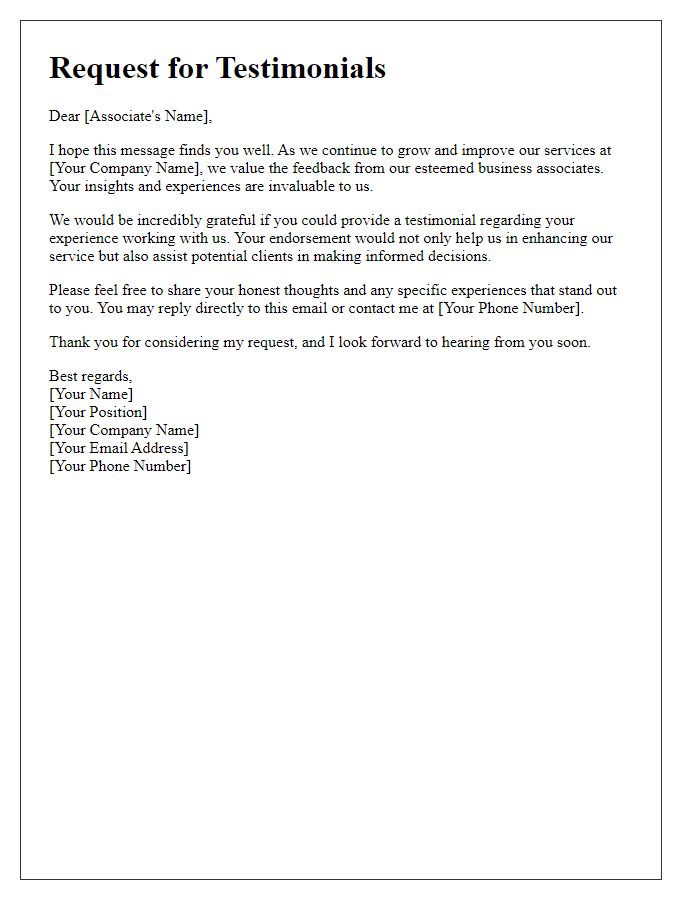
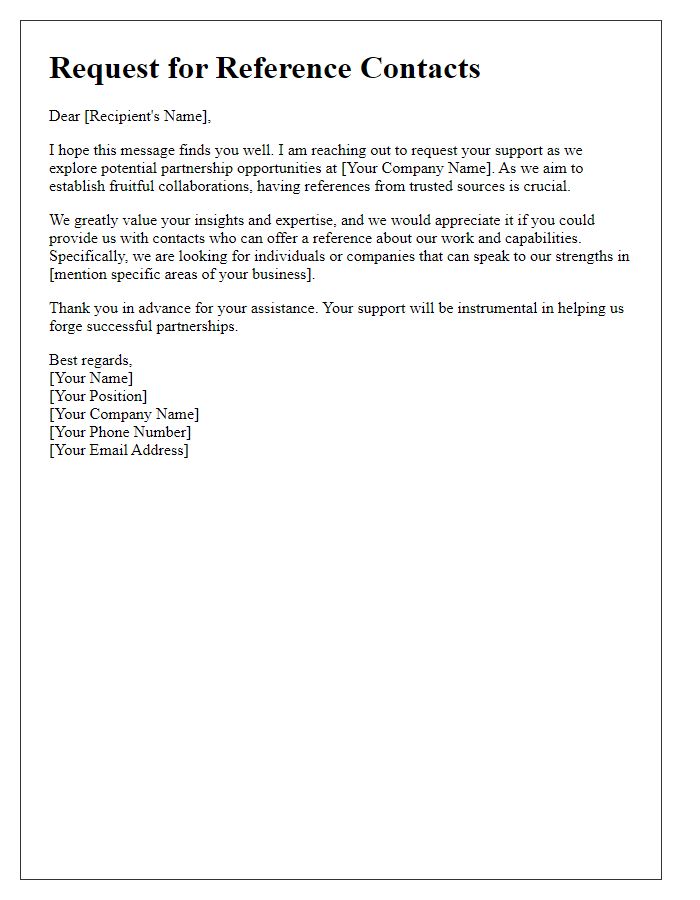
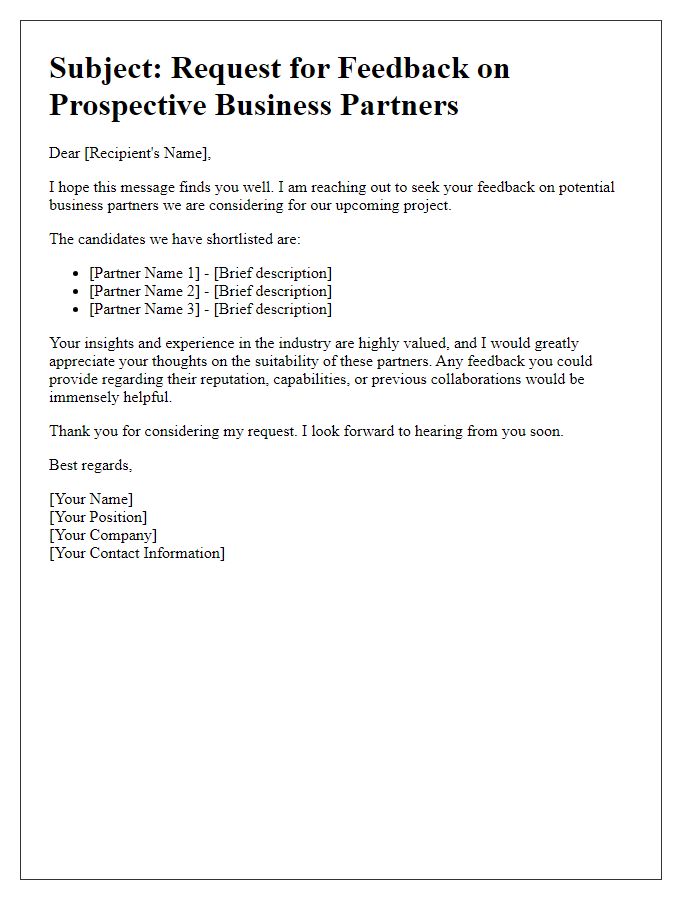


Comments